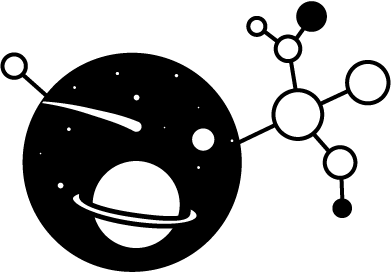AstroMat and MoonDB posters at LPSC
Please join us Thursday March 21 at the Lunar and Planetary Science Conference for our poster presentations on the Astromaterials Data System (Poster #684) and MoonDB(Poster #700). See below for more information.
March 21, 6:00 - 9:00 pm, Town Center Exhibit Area, The Woodlands Waterway Marriott Hotel
The Astromaterials Data System: Transforming Access to Planetary Sample Data: The Astromaterials Acquisition and Curation Office of NASA’s Johnson Space Center (JSC) curates the world’s most extensive and precious collections of extraterrestrial materials - meteorites, cosmic and interplanetary dust, solar wind, and lunar rocks - and makes them available to the global research community for scientific research. Thousands of geochemical, petrological, and geochronological studies have been conducted over time, producing a treasure trove of data that hold a huge potential for future discoveries. JSC and the EarthChem group at the Lamont-Doherty Earth Observatory have embarked on a major effort to build a comprehensive data system for all analytical data generated from JSC’s astromaterials collections, the Astromaterials Data System (AstroMat, www.astromat.org). AstroMat will not only ensure long-term preservation and access of analytical data for specimens curated at JSC, but provide a context-rich searchable database of the data offering for the first time the ability to easily compare analytical data across diverse extraterrestrial collections, thus facilitating the study of comparative planetology.
MoonDB: 50 Years of Lunar Sample Data Ready for the Data Revolution: MoonDB (http://www.moondb.org) is a data system designed to restore and synthesize geochemical and petrological measurements from the study of lunar samples. Since 2015, major, trace, and isotope data for nearly 2,600 samples from approximately 650 references were compiled into the database. MoonDB’s web application allows users to browse, search, and retrieve data, and currently allows for queries by mission, landmark, specimen type, sampling technique, analysis method, and analyte. Users can download the data in multiple forms, see data holdings, and access MoonDB APIs. MoonDB also offers repository services for legacy and new datasets submitted by users to share their data and comply with funders’ and publishers’ policies for FAIR data (Findable, Accessible, Interoperable, Reusable). Additionally, MoonDB has created a comprehensive reference library of over 5,000 papers and abstracts related to lunar samples and meteorites that will become accessible and searchable in late 2019.
Astromaterials Data System Town Hall
Astromaterials Data System Town Hall
Lunar and Planetary Science Conference, The Woodlands, Texas, March 19th, 2019
PLEASE JOIN US TO LEARN ABOUT THE ASTROMATERIALS DATA SYSTEM
Tuesday March 19th, 12:00 – 1:00 pm, Indian Springs Room
The Woodlands Waterway Marriott Hotel and Convention Center
Transforming Access to Astromaterial Data: NASA’s Astromaterials Data System
This Town Hall invites interested researchers to learn about NASA-JSC’s plans for the Astromaterials Data System (AstroMat) and engage in its design and development. AstroMat is envisioned to provide a comprehensive data system for sharing, accessing, and archiving of laboratory data generated by the study of NASA-JSC’s astromaterial collections, including the lunar, Antarctic meteorite, Cosmic Dust, Genesis, Hayabusa, Stardust, and Microparticle Impact collections. AstroMat will create a community platform that will allow investigators to share their data in compliance with funders’ and publishers’ data policies while providing new ways to explore and mine a comprehensive synthesis of past, present and future analytical data of astromaterials.
Come learn about plans for AstroMat and provide input into the design and development of the system. For questions, please contact us at astromatdata@gmail.com. Lunch will be provided on a first come, first served basis.
Please click here to subscribe to future Astromaterials Data System news

